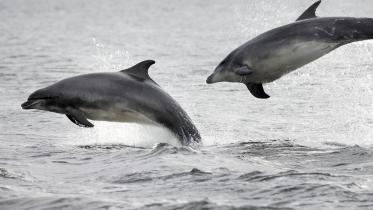Managing coasts and seas
Effectively managing the many uses and activities in our marine environment is crucial to ensuring its healthy and productive future.
Scotland’s diverse coasts and seas support a wealth of habitats and species, and generate more than £2.2 billion for the Scottish economy. They’re also a big part of our culture, history, landscape and recreation.
NatureScot supports the sustainable use of our coasts and seas. We provide advice to steer development to less sensitive locations and minimise negative effects on habitats, species and landscapes.
For the first time, Scotland has a marine planning system, which covers the use of Scottish waters at the international, UK, Scottish and regional levels. We provide advice to help plan and steer marine uses and activities away from sensitive locations. Among other things, we hope it will minimise conflicts of interest over marine uses and activities.
Fishing has great economic and cultural value in Scotland and is closely linked to the conservation of our marine natural heritage. We aim to improve the sustainability of Scottish fisheries and minimise negative effects on marine species and habitats.
We support the sustainable growth of Scotland’s marine aquaculture industry – otherwise known as fish farming. Our approach to planning and development is to help deliver good development in the right places.
Seaweed is a useful resource that can be harvested sustainably – but its sustainable management is a complex task. Egg wrack and kelp both play important roles in supporting biodiversity and in wider marine ecosystems. We provide advice to minimise the impacts of harvesting on these important functions.
Our oil and gas industry is one of the most productive in Europe. To minimise negative effects on species and habitats, we advise on inshore oil and gas development and onshore processing activities.
We strongly support a sustainable marine renewables industry in Scotland, with suitable developments in the right places. Our role is to inform the location of marine renewables schemes, advise on consent applications, conduct research on interactions, and provide guidance.
Natural and human processes often meet on Scotland’s coastline. We advise on how to avoid marine pollution and construction impacts from coastal development.
Scotland has a growing problem with marine invasive non-native species, which threaten marine biodiversity and more. Early detection is crucial if we’re to try to clear an invasive species that has arrived in our waters.



